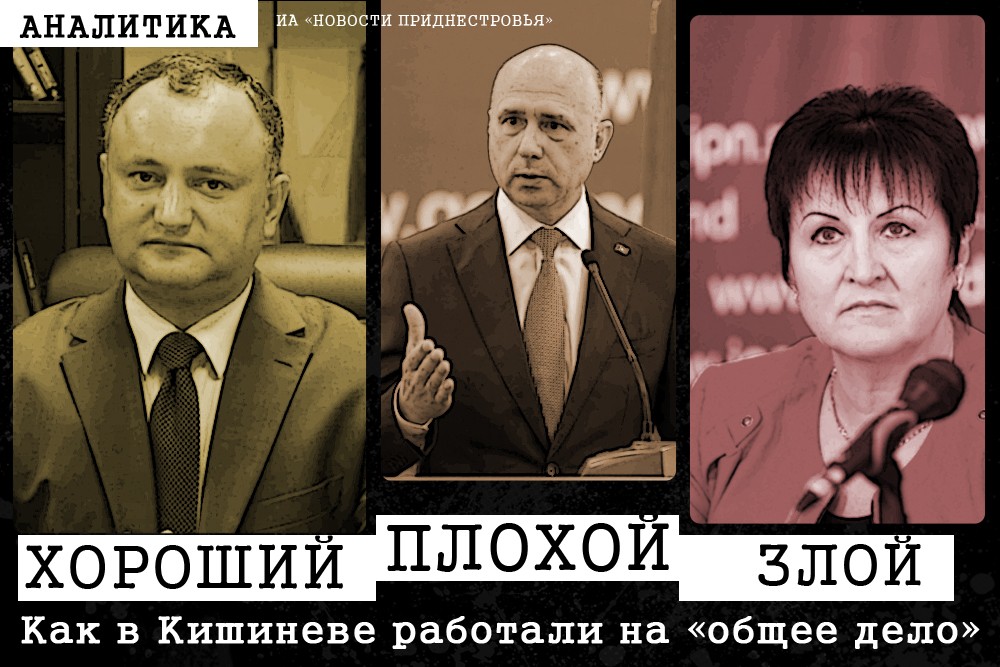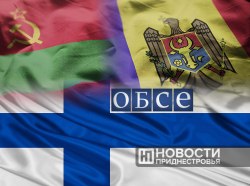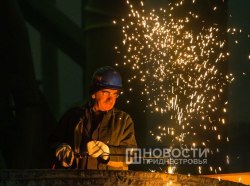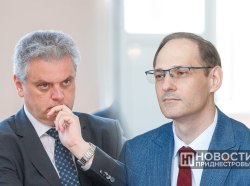In recent days Moldovan politicians have addressed three messages to Pridnestrovie. The first came from Moldovan President Igor Dodon. He proposed to create a social dialogue platform for reconciliation and agreement between the Dniester banks. However, it is not clear yet how this platform will look like, when exactly it will be formed, which topics will be discussed and who will take part in the discussion. Dodon has not given more details about his proposal so far.
In addition, the Moldovan president submitted one more proposal — to include Pridnestrovian representatives in the Moldovan parliament. This proposal has many obscurities as well: Do we really need these representatives there? What will they influence and decide? And who are they going to represent?
A second message was put forth by the Moldovan government. In contrast to the president's, it was very specific and clear — a joint Moldovan-Ukrainian checkpoint Kuchurgany-Pervomaysk is due to start work by the end of 2017. And this is only the first signs — Kishinev and Kiev plan afterwards, apparently with the EU's assistance, to implement a joint monitoring scheme along the entire Pridnestrovian-Ukrainian border.
Much has recently been said about what may result from the establishment of Moldovan Ukrainian posts. In particular, this will impact Pridnestrovie's individual entrepreneurship which may face additional taxation and troublesome peculiarities of Moldovan legislation. There will be a danger that the customs and transportation blockade of Pridnestrovie may escalate any moment. And this is not at all a complete list of risk factors.
Finally, a third message came from the Moldovan rightists. On the one hand, they are represented by opposition leaders Maia Sandu, Andrei Nastase, Viorel Cibotaru and Oazu Nantoi, and on the other hand, by the leader of the pro-Romanian party The Right, Ana Gutu. But they all voiced almost the same idea. According to Nantoi, seeking a settlement between Kishinev and Tiraspol in the «5+2» format is demagogy. A plan of three D's should be applied in Pridnestrovie instead — democratisation, demilitarisation, decriminalisation — which Nantoi proposed back 15 years ago and which he has periodically dusted off.
Ana Gutu said almost the same but only more straightforward. The «5+2″ format negotiations, according to her, should be ceased and „frozen“, Moldova should pull out of this format, „fencing off“ Pridnestrovie and tightening control along the border with the PMR.
***
Now, let's try and take another, objective glance at all this as if from outside. Undoubtedly, each of the Moldovan politicians played well its part, but there is a feeling that they all worked for the common cause, namely to force Pridnestrovie into assuming in the future an unequal political status within Moldova.
During his recent meetings with Moldova's prime minister Pavel Filip and speaker Andrian Candu, Igor Dodon urged „all state authorities to share a common position on the Pridnestrovian issue“. And we may already presume what it’s like. Within this position, the Moldovan president plays the role of a good policeman» towards Pridnestrovie, the government acts as «a bad” one» and the Right, as they say, as quite an «ugly» policeman. But they are all «policemen».
Pay attention: Dodon speaks about certain «social platforms» and proposes to involve Pridnestrovie in Moldova's legislative framework, but his public reaction towards the steps taken by the Moldovan government along Pridnestrovie's border with Ukraine is yet to come: does he support these steps after all?
Similarly, the Moldovan government seems to allow Igor Dodon to create illusions for Moscow that everything goes all right and the ultimate settlement is not far off while preparing another clamping down on Pridnestrovie. As a result, some Russian politicians hope that «the settlement of Pridnestrovie's status will not be standing still after all» and that «the Moldovan president will also play a role in this respect».
From this point of view, Igor Dodon is a favourable figure for Moldova's pro-European government.
As for the right-wing parties, there is no surprise their statement has surfaced right now. Their radicalism also plays into the hands of the current government as it is intended to cut off «on approach» any talks about a full-fledged federation in Moldova. And even Dodon will be able to say: we can't do anything — you, in Pridnestrovie, need to agree to some kind of «semi-federation or semi-autonomy» within Moldova. And Russia needs to agree to it as well. Besides, the Moldovan president has not recently been heard using the word «federation».
Another striking similarity between the statements by the Right and the actions by the Moldovan government. The Right only talk about tighter control at the border, whereas the government do it. The Right call on the authorities to reduce and disavow the significance of the «5+2» format, but it is not the first time when the government enters into local negotiations with Ukraine, excluding Pridnestrovie from them.
All this does not contribute to resolving the long-standing problems, such as the recognition of university diplomas and motorcar plates, but creates new ones. If it further goes this way, the entire positive impetus given by January's meeting between the presidents of Pridnestrovie and Moldova will be lost. And the negotiations process itself will sink in useless discussions about the «third basket» and the «status» of Pridnestrovie.
Pavel Uvarov.








